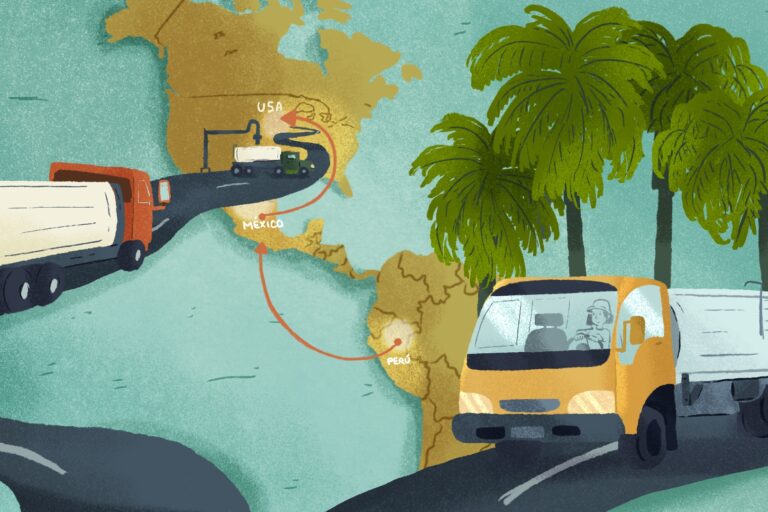- cross-posted to:
- news
- cross-posted to:
- news
- In the last few years it is likely that PepsiCo has been using in its production palm oil from deforested land claimed by the Shipibo-Konibo people in eastern Peru, a new investigation has found.
- Palm oil from Peru enters PepsiCo’s supply chain via a consortium that shares storage facilities with Ocho Sur, the second largest palm oil producer in the country which has been associated with deforestation and violation of Indigenous peoples’ rights. In the last three years, further deforestation occurred within the company’s land, the investigation found.
- Some of the forest loss on company-run oil palm plantations occurred on land claimed by the Santa Clara de Uchunya community of Shipibo-Konibo Indigenous people.
- PepsiCo manufactures at least 15 products containing Peruvian palm oil that could be linked to deforestation. The company has pledged to make 100% of its palm oil supply deforestation-free by the end of 2022 and for its operation to be net zero by 2040.
The US food and drink giant PepsiCo has been linked through its supply chain to Amazon deforestation and the invasion of Indigenous lands in Peru, the Bureau of Investigative Journalism (TBIJ), Mongabay and Peruvian outlet Ojo Público can reveal.
For at least three years, PepsiCo’s Peruvian suppliers have been sourcing palm oil from deforested territory claimed by the Shipibo-Konibo people in Ucayali, eastern Peru.
The company, which manufactures snacks including Cheetos and Gatorade, runs a factory in Mexico that buys Peruvian palm oil after it has been processed at a Mexican refinery. That refinery buys from a Peruvian consortium, Sol de Palma, that shares storage facilities with Ocho Sur, a notorious US-funded business accused of repeated environmental and human rights violations.
The storage facilities mix the various batches of palm oil, meaning PepsiCo products likely contain Ocho Sur oil despite no longer buying directly from the company.
Ocho Sur is linked to 17,000 hectares (42,000 acres) of forest loss in the past decade – both within its own property and through its direct suppliers. While some of the forest loss took place under other companies, satellite analyses by the Center for Climate Crime Analysis (CCCA) and TBIJ show clear deforestation on Ocho Sur’s land in the past three years. Below a satellite image of an Ocho Sur plantation shows deforestation between 2021 and 2024 (courtesy of TBIJ/Ocho Sur.)


